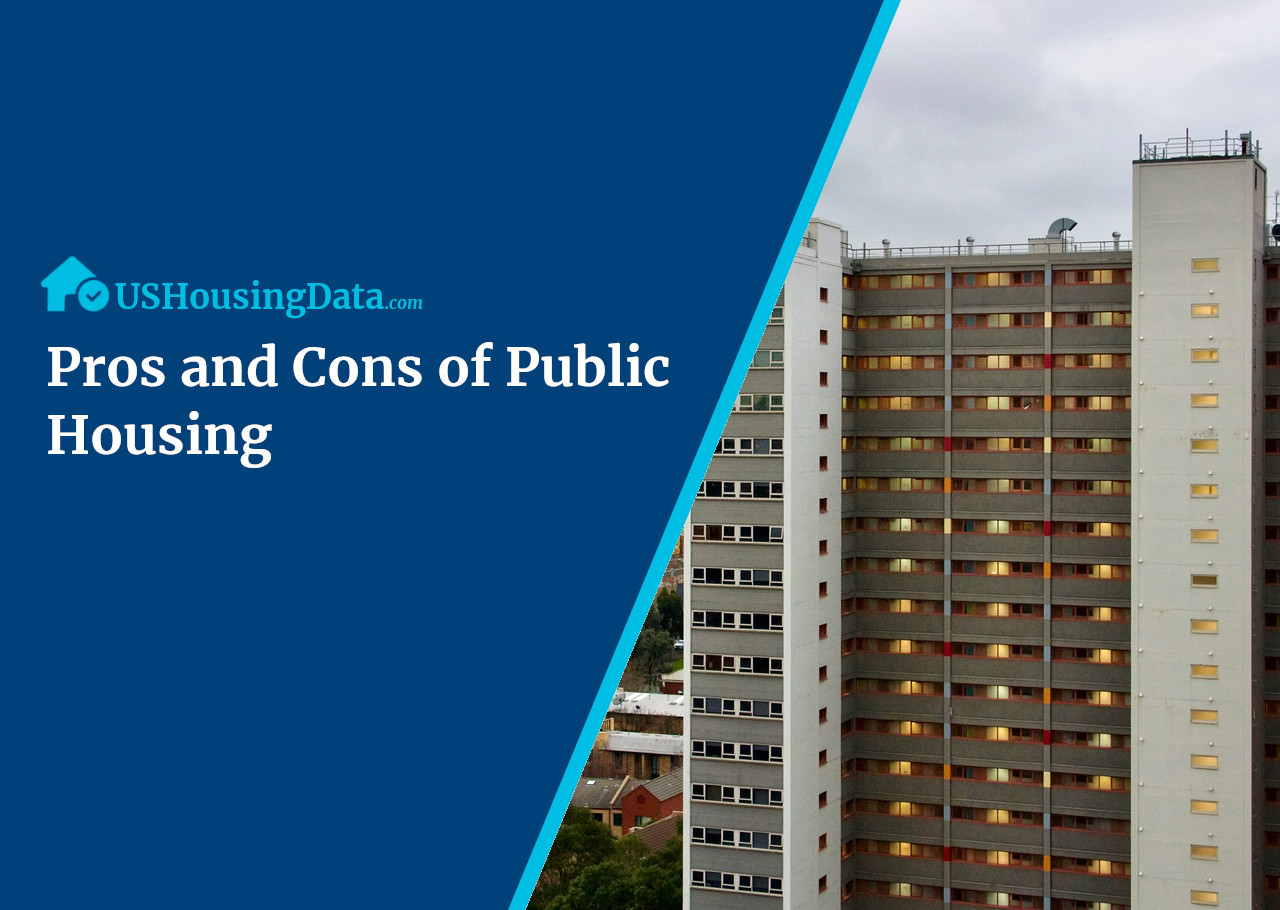
Pros and Cons of Public Housing
Public housing ventures are financed primarily by federal funds but are usually the responsibility of the local government.
The government appoints commissioners who develop a housing authority. This authority builds, plans, and administers social housing.
Many wonder about the main pros and cons of public housing, so in this article, we’ll dive deep into this topic and discover everything you need to know.
What is Public Housing?
Public housing, or low-income housing, is a type of government-subsidized accommodation. This caters to people with incomes below the national average.
Benefits of Public Housing
Affordable Rents
High rent is a common problem everywhere, but social housing helps to minimize rent for many people.
This creates stability in the market and provides affordable housing for families who desperately need it.
Eliminates Poverty
High rent leads to poverty because families spend a large amount on paying rent. This is how they're unable to spend on groceries or education. Public housing indirectly increases the chances of education because families can spend a bigger percentage of their income on education.
Reduces Homelessness
Homelessness is a growing issue because of high rent - again. For instance, the rental trends in Silicon Valley were cheap before the tech boom.
But now very few people can afford to live there.
Great for People With Low-incomes
Public housing is a targeted program that only attempts to support poor people.
This is important to fill out the wealth gap in society. Wealth inequality is prominent in all countries. And that’s where public housing can help.
Supports Pensioners
Poverty in old age is a worrying issue, too. The problem lies in rents again. They are much higher than the average pension payments, making people unable to afford rent with some becoming homeless.
Individuals who worked all their life deserve the security of not ending up in poverty. Among the most helpful advantages of public housing is how it prevents our older generation from losing their home.
Drawbacks of Public Housing
Socially Expensive
One of the disadvantages of public housing is that it puts pressure on taxpayers. This is financed with taxpayer money, which amounts to billions of dollars annually.
Social Isolation
Public housing is often concentrated in specific areas, such as huge apartment blocks which are socially cut off. People residing in these blocks find it difficult to socialize and meet new friends.
This downside is further amplified if public housing blocks do not have stable transport connections. Families with children especially don’t like this.
Can be Misused
Even if the majority of applicants need help, some people try to exploit the program. Those with high-paying jobs sometimes apply for social housing to simply misuse the system.
Lack of Safety
Considerable safety concerns are associated with public housing. Residents who are experiencing poverty may feel unsafe due to their frustrations and their living conditions. This can increase the risk of attacks and other safety issues.
Lack of Maintenance
Even if social housing buildings appear good in the beginning, they quickly degrade in standard as the government does not spend money on their upkeep. This is why these buildings get unfit to live in after some time.
Final Thoughts
Overall, public housing provides affordable accommodations that help reduce poverty and homelessness as well as support marginalized groups. Yet it may be socially costly and a bit isolating.
Alan Reed

Alan is a real estate investor based in Northeast Pennsylvania with experience renovating and operating everything from single-family rentals to strip malls and storage facilities.
June 04, 2023 (Updated April 22, 2024)
